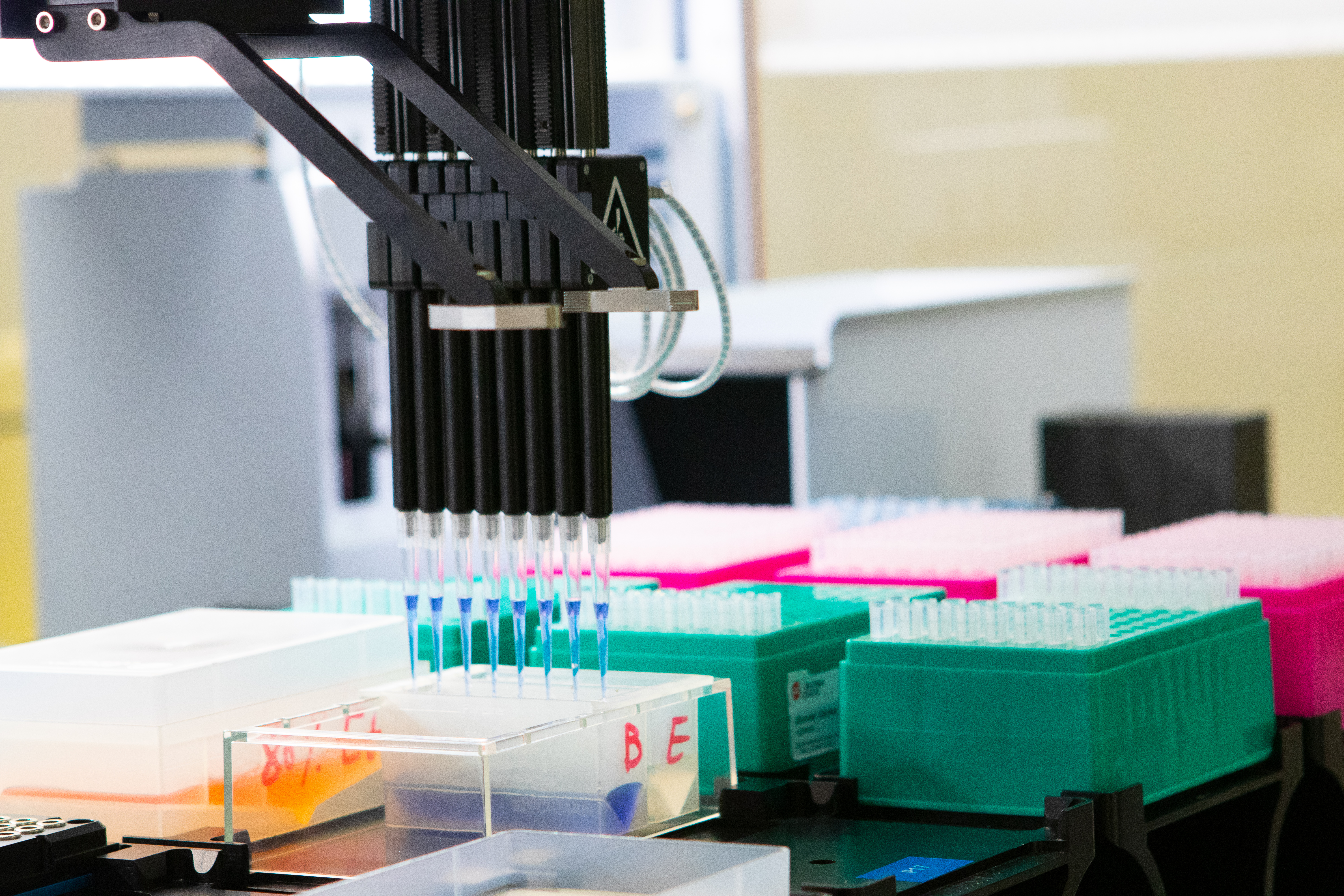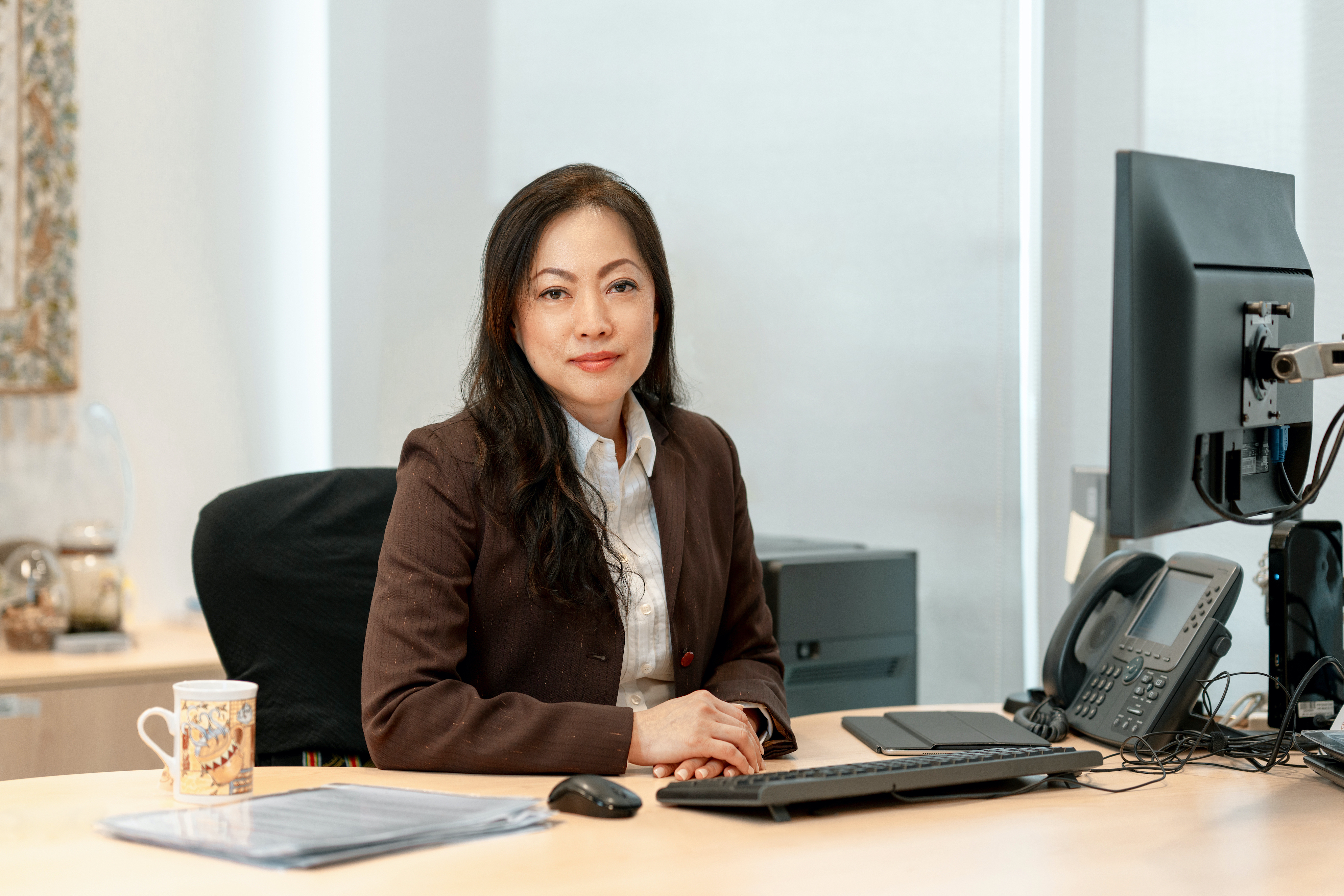A*STAR NEWS
FEATURES
From lab to table: Towards Singapore’s “30 by 30” food security goal
Through research and technology, the new Singapore Institute of Food and Biotechnology Innovation will support the country’s effort to produce 30 per cent of its nutritional needs locally by 2030.
White bread is a breakfast staple for many Singaporeans. But not many realise that white bread, is a high Glycaemic Index (GI) food.
 Dr Hazel Khoo, Executive Director, A*STAR’s SIFBI.
Dr Hazel Khoo, Executive Director, A*STAR’s SIFBI.
Excessive consumption of high GI foods has a greater long-term health impact on Asians, as compared to Westerners. This is because Asians seem to metabolise and utilise carbohydrates differently, leading to a bigger spike in their blood glucose levels. This may lead to higher incidence of diabetes, explained Dr Hazel Khoo, who is the Executive Director of A*STAR’s Singapore Institute of Food and Biotechnology Innovation (SIFBI), and Senior Director of Research, Innovation and Enterprise (RIE) 2025 at the Singapore Food Agency (SFA).
With Singapore’s “30 by 30” goal – producing 30 per cent of its nutritional needs locally by 2030 – comes the perfect opportunity for SIFBI to pioneer safer and more nutritious foods for Asians.
Along with other public sector players and institutes of higher learning (IHLs), SIFBI plans to boost Singapore’s local produce capabilities that will serve up sustainable food and food ingredient options, alternative proteins and novel nutrient-enriched delicacies like crabmeat grown in labs instead of the sea, aimed at earning the Republic the title of Asia’s food innovation hub.
Spicing up the food ecosystem
As the city-state imports over 90 per cent of its food, Singapore is not insulated from Asia’s mounting food security challenges.
Due to climate change, Asia’s arable land per capita – which is already lower than the global average – is set to fall even further, noted Dr Khoo. Meanwhile, the continent’s appetite for meat and seafood is expected to grow by more than 30 per cent in the next 10 years.
At home, less than 1 per cent of Singapore’s land area is used for food production. These farms produce commonly consumed food items such as eggs, fish and leafy greens, meeting 26 per cent, 10 per cent and 14 per cent respectively of local consumption last year.
More needs to be done. The global food supply disruptions wrought by the Covid-19 pandemic have underscored the importance of local production as part of Singapore’s strategies to ensure food security.
“Singapore is vulnerable to food security issues, but we can turn these challenges into opportunities through R&D,” said Dr Khoo.
SIFBI, which was officially launched on 1 April 2020, hopes to build a dynamic food ecosystem by establishing Singapore as Asia's go-to place for food technology development. Through its cutting-edge biotechnology and clinical nutrition facilities, coupled with process engineering and new food safety methodologies, SIFBI will collaborate with universities and industry partners to develop new foods, food systems and ingredients. These will complement the other urban agriculture and aquaculture capabilities in the ecosystem to realise Singapore’s “30 by 30” goal.
In addition, these R&D efforts can collectively beef up Singapore’s economy and create innovative jobs with food enterprises in the start-up, SME and MNC space.
“Today, we have a vibrant agri-food ecosystem, and we want to grow (Singapore’s) branding for high-quality and safe products, and to transform the local food industry,” she added.
Discovering new food sources in the lab
Fortunately, SIFBI did not have to start from scratch as several existing A*STAR research groups were brought under its umbrella. It now boasts a smorgasbord of research competencies in areas such as biotransformation, fermentation, clinical nutrition and food process engineering.
Its R&D involves the discovery of novel food ingredients, including alternative sources of protein such as algae, fungi or even bacteria. SIFBI researchers are also studying how microorganisms can sustainably produce high value-added compounds – such as an antioxidant that gives tomato its red colour.

SIFBI works with industry collaborators to increase the production of a variety of different compounds in both the consumer care and food industry.
Local start-ups currently supported by the government, such as – Sophie’s Bionutrients, which grows microalgae instead of animals for meat – will benefit from improved access to information on food safety and novel food production processes from SIFBI. The company is currently looking into developing a new sustainable microbial-based protein out of microalgae.
Singapore’s agri-food industry needs to leverage R&D and adopt new climate-resilient and sustainable technologies to raise productivity and overcome resource constraints. Technology will play a key role in helping us reach our “30 by 30” goal. For instance, indoor high-tech urban farms can implement smart sensors that provide crops with the right amount of light and nutrients, while data analytics will allow farms to monitor and optimise their operations.
There are also tremendous economic opportunities for Singapore to be a world leader in this area and the R&D infrastructure is well-positioned for it. SIFBI is also looking for partners that can offer complementary strengths. These include public and private enterprises in sectors such as food processing and distribution, as well as local and overseas institutes of higher learning (IHLs), which will groom talent for jobs in the industry.
Getting consumers to accept new food
However, a crucial challenge lies outside of R&D – educating consumers on the safety and benefits of novel foods.
Dr Khoo believes that such projects can learn lessons from the Singapore Water Story’s NEWater campaign – treated used water that was launched for public consumption in 2003. It highlights the importance of good education strategies to improve consumer acceptance, such as strong government support and extensive community engagement.

“It’s not just A*STAR alone in this journey,” she said. “This is an audacious goal but the ecosystem is ripe and ready, and collectively, we need to wrap our minds around the challenge and tackle it head-on.”
Perhaps within the next decade, SIFBI’s efforts will see newly-developed bread or a more sustainable production of new food systems that will provide Singaporeans – and Asians – with more nutrition and fewer health risks.
Stay tuned for the next installment of this Future of Food series. Next week, we showcase A*STAR’s collaborations with local food industry partners.
Was the article helpful?
A*STAR celebrates International Women's Day

From groundbreaking discoveries to cutting-edge research, our researchers are empowering the next generation of female science, technology, engineering and mathematics (STEM) leaders.
Get inspired by our #WomeninSTEM
